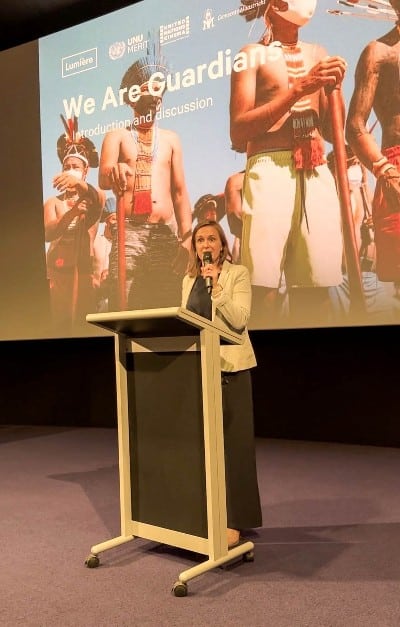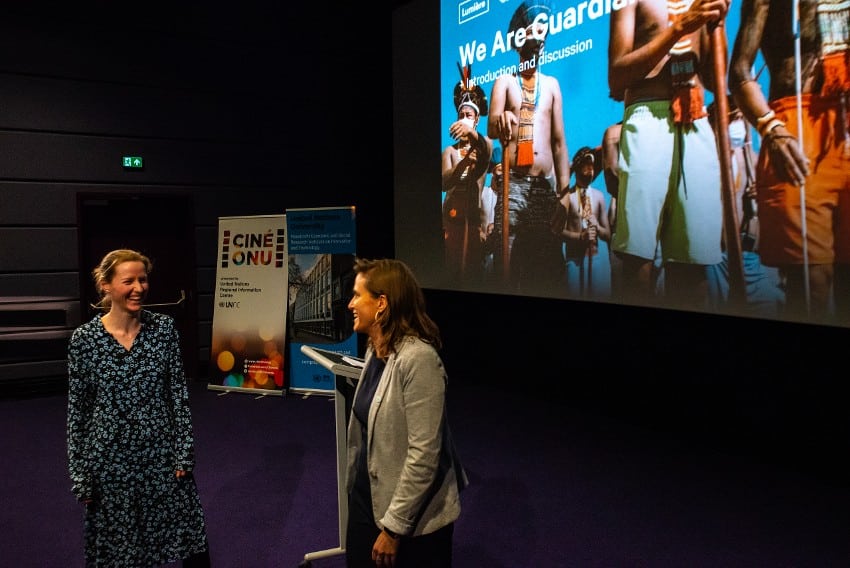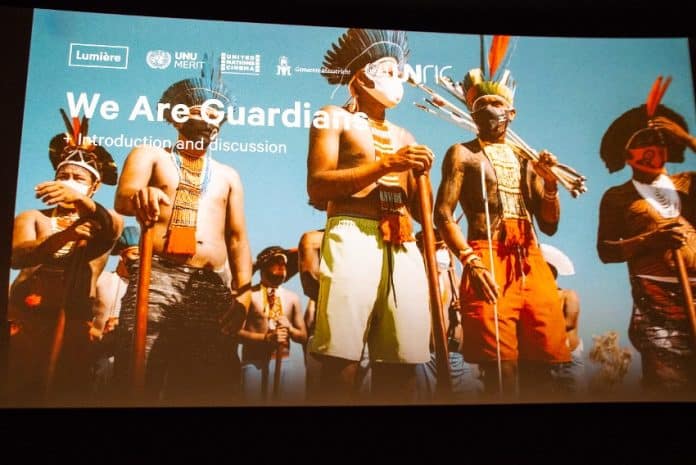“Indigenous people have been guardians of the forest for centuries,” says Edivan Guajajara, from the Zutiwa village, located in Arariboia Indigenous Land (Maranhão, Brazil), who opened the debate at the first UN Cinema event in Maastricht. As one of the three co-directors of the film We Are Guardians, he took part in the panel discussion and Q&A following the screening of this award-winning documentary at Lumière Cinema, organised to mark World Environment Day.
Mr. Guajajara addressed the audience of this sold-out event alongside co-directors Chelsea Greene and Rob Grobman and Dr. André Nunes Chaib, Assistant Professor of Globalisation and Law at Maastricht University.
Protecting the Amazon and the planet
The documentary follows a diverse group of indigenous people striving to protect the Brazilian Amazon rainforest and fighting to preserve their environmental and human rights against large-scale environmental destruction and corruption.

The Amazon rainforest plays a crucial role in global climate stability, making this documentary especially important for the UN. Through events like these, the United Nations Regional Information Centre (UNRIC) and its partners aim to echo the Secretary-General’s call to unite and combat climate change.
“We do have a choice,” Mr. Guterres stressed in his latest speech on climate change. “Creating tipping points for climate progress – or careening to tipping points for climate disaster. (…) Together, we can win.”
“The Amazon can still absorb carbon. We need to respond now. It is crucial for the entire planet,” said Chelsea Greene, film co-director, adding that she is “passionate about continuing to put the information out there.”
Solutions offer hope
Events such as these highlight the solutions and the need for activism to inspire action from governments, the private sector, academia, etc. Assistant Professor Dr Chaib says it is “our duty to be engaged. By studying these issues in academia, solutions can be offered from different disciplines.”
Other solutions are also being put in place. During the panel discussion, Mr. Guajajara explained that his people are equipped with tools, technology, and training to become guardians in an area covering 403,000 hectares. An increasing number of women participate in these guardian missions to protect their territories. “This approach helps to diffuse conflict”, Ms. Greene added.

“Regeneration is the answer to despair,” film co-director Rob Grobman added, putting land restoration, the theme of this year’s World Environment Day, front and central in this debate. Through the film’s impact campaign, communities replant areas of forest that have been destroyed in their territories.
Mr. Guajajara concluded the debate with a message of hope: “Ultimately our differences are not irreconcilable, it is possible.”
This screening was a collaboration between United Nations University – Maastricht Economic and Social Research Institute on Innovation and Technology (UNU-MERIT) and UNRIC, with support from Lumière Cinema and Gemeente Maastricht.
More information
- UN Climate Conference 2024 (COP29)
- Check the website of We Are Guardians
- World Environment Day 2024
- Guterres calls for a clamp down on the fossil fuel industry

